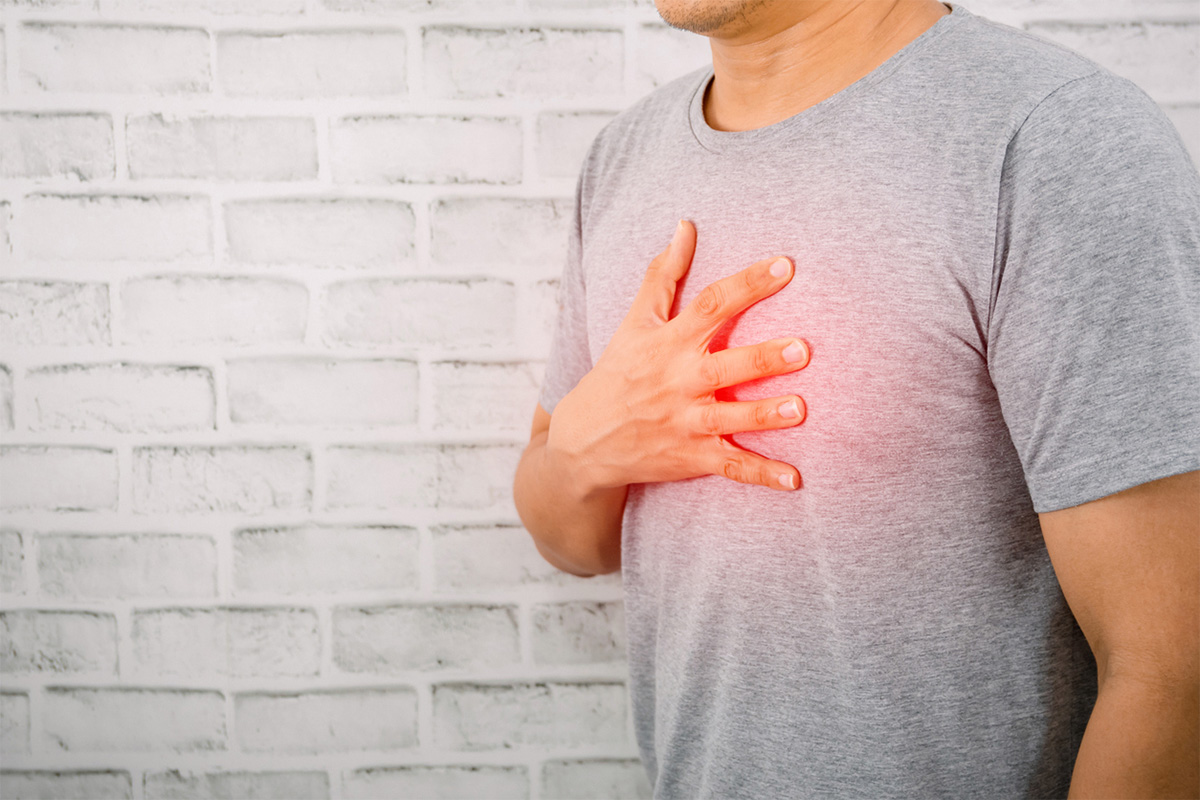-
Services
Featured Specialties
-
Locations
Location Type
-
Patients & Visitors
Published January 01, 2023

You’re probably aware of the classic signs of a heart attack: the crushing chest pain, the shortness of breath. But what about the less obvious signs of heart disease? It doesn’t always announce itself with a bang. Are there subtle signs you should watch out for that indicate you may have ticker trouble?
Heart disease is the leading cause of death for both women and men. About 697,000 people in the United States died from heart disease in 2020—that’s 1 in every 5 deaths. That means someone in dies of cardiovascular disease about every 34 seconds.
Heart disease is not limited to heart attacks alone. When talking about heart disease, it is important to recognize the other causes as well, according to Lisa Freed, MD, a cardiologist at Yale New Haven Hospital and assistant clinical professor of cardiology at Yale School of Medicine who sees patients in North Haven, Orange and Guilford. “There are many possible causes of heart disease. The most common is coronary artery disease, or blockages in the arteries that supply blood to the heart. In addition, someone may experience irregular heartbeats, or arrythmias. Atrial fibrillation is the most common one,” she said.
“Sometimes, a person may develop a weakening of the heart muscle, which is also called a cardiomyopathy. This can lead to fluid in the lungs, which is known as congestive heart failure. Also, you can be born with abnormalities of the heart valves (the gates in the heart that control the flow of blood) or develop abnormalities with aging. These valve abnormalities are called regurgitation (leaking of the valves) or stenosis (a narrowing of the valves).”
Symptoms may vary depending on the type of heart disease you have. Indicators that you may have heart problems may include:
Episodes of chest pain are common with exertion before experiencing a heart attack. Sometimes, however, the very first sign something is wrong with your heart health is a heart attack.
It’s especially important for women to learn to recognize the risk factors and signs of heart problems, said Dr. Freed, who is the director of YNHH’s Women's Heart and Vascular Program. The program provides screening, education and treatment for women at risk for or with established heart disease. It includes close collaboration with experts in behavioral health, diabetes, exercise physiology, nutrition, obstetrics/gynecology, sleep medicine and smoking cessation.
“Heart attacks have been traditionally considered to be a disease of men. However, heart disease kills more women than any other condition,” she said.
Women are especially vulnerable after menopause (which generally occurs around age 50) when their levels of estrogen drop and the risk of heart attack increases. Other cardiac risk factors that are particular to women include:
According to Dr. Freed, women often delay getting lifesaving care for heart attack symptoms, because their symptoms do not match what they think a heart attack should feel like. Only about half of women who have heart attacks first experience chest pain. Oftentimes, women write off these “silent” heart attacks as indigestion, a sprained or strained muscle, fatigue, anxiety or just feeling run-down.
“Some women fail to take their symptoms seriously. Others feel embarrassed at the thought that they might go to the emergency department and learn that their symptoms are caused by something other than a heart attack. However, waiting longer before getting care can lead to less favorable outcomes,” said Dr. Freed.
“Women need to be our own advocates. Base your decision to seek care on what feels normal and abnormal for you. If you are experiencing symptoms that feel new to you, call your doctor,” she added.
For both women and men, a number of factors increase the risk of heart disease. According to Dr. Freed, the most common of these include diabetes, high blood pressure, high cholesterol, tobacco use, lack of exercise, excess weight, untreated sleep apnea and a family history of heart disease.
Dr. Freed recommends that you be proactive about your health to reduce the risk of cardiac events. Keep your weight within a healthy normal range, exercise regularly and follow a heart-healthy diet.
Learn more about Heart and Vascular Services at Yale New Haven Hospital.